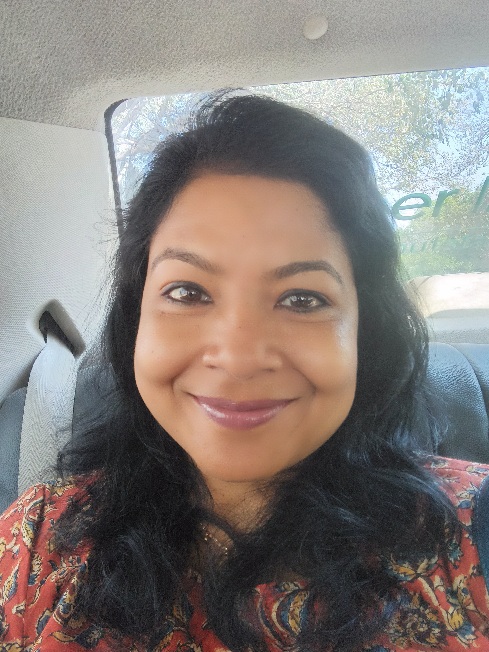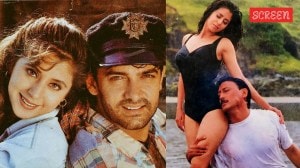Click here to join Express Pune WhatsApp channel and get a curated list of our stories
From women’s stories to a father looking for a terrorist-training school, a festival brings alive plays by award-winning director
As the characters interact, their individual perspectives and experiences come to the fore and the idea of what it is to be a woman in the modern world begins to take shape.
 Kora Canvas highlights a little-known aspect of theatre-making – sometimes an actor's intimate realities are so deeply embedded in a story that bringing in a replacement actor will compromise the truth of the play. (Express Photo)
Kora Canvas highlights a little-known aspect of theatre-making – sometimes an actor's intimate realities are so deeply embedded in a story that bringing in a replacement actor will compromise the truth of the play. (Express Photo)Experiences of women is what fills the stage of Kora Canvas. The play revolves around four girls who used to be friends in college but have drifted apart and one night they decide to reconnect at a farmhouse. As the characters interact, their individual perspectives and experiences come to the fore and the idea of what it is to be a woman in the modern world begins to take shape.
A striking facet of the play is that it is performed only once or twice a year. “One of the actors in the play used to live in Pune. We had performed about 30 shows while she was here but she had to relocate to the US. Now, she comes down once or twice every year and that’s when we enthusiastically get together to enact this play,” says Rupali Bhave, one of the actors of the play. This years shows will be held on July 18, at 5 pm and 8 pm, at The Box in Erandwane.
Kora Canvas highlights a little-known aspect of theatre-making – sometimes an actor’s intimate realities are so deeply embedded in a story that bringing in a replacement actor will compromise the truth of the play. For that very reason Pradeep Vaiddya, an award-winning theatre artist, writer and director of the Kora Canvas, has chosen not to perform the play without its original cast.
“My process of creating plays is in partnership with the actors. In Kora Canvas, I preferred not o participate in several sessions that involved personal sharing by the actors. The plot points of Kora Canvas are such that the actors bring out certain nuances from their private, intimate experiences. It is these personal expressions that comprises the play’s sub-text. It is unacceptable to me to have another actor come and say the lines,” he says.
Over the next few days, audiences in Pune have a chance to watch a number of stellar productions that have been directed by Vaiddya. On show are not only a wide array of stories but, if you read between the lines, ways of sustaining theatre during a challenging time when actors are juggling multiple assignments. “This is a reality for directors because actors are busy elsewhere. They might wish to work in my plays but cannot find dates. Their problem becomes mine as well,” says Vaiddya.
The Box, founded by Vaiddya and Bhave, is hosting a series of plays by Vaiddya including Kajvyancha Gaon, an emotional journey of changing family values where actors break out of the performance space into the audience seats so as to make them active participants of the drama.
With Kajvyancha Gaon, which is to be staged on July 16, 7 pm, Vaiddya created a process to sustain a play that has 14 actors. “Since 14 actors cannot always find time together, we introduced parallel casting as a solution. New actors go into training with the actor who has been playing the role for many shows. The latter shares the sub-text and other details so that the relationship between the new and old actors is stable. It is only at the last stage that I come in to guise the actors in a particular way,” says Vaiddya.
The festival concludes with Atireki on July 22. Written by Satish Alekar, the two-act play is being revived after 35 years. It revolves around a middle-class father who has suffered oppression and neglect all his life. He believes that turning his son into a terrorist is the only way to become powerful. He plans to enroll him in a terrorist-training school so that he will wield mighty power. “Though the story talks about the socio-economic political scenario of another era, it is strangely still relevant,” says Bhave.
Click here to join Express Pune WhatsApp channel and get a curated list of our stories
Photos
- 01
- 02
- 03
- 04
- 05































